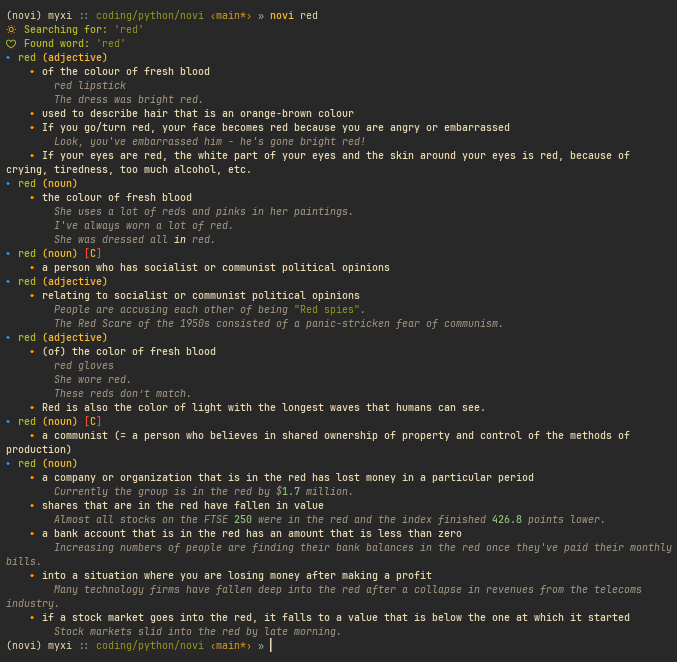this post was submitted on 14 Mar 2024
132 points (96.5% liked)
Programming
17484 readers
102 users here now
Welcome to the main community in programming.dev! Feel free to post anything relating to programming here!
Cross posting is strongly encouraged in the instance. If you feel your post or another person's post makes sense in another community cross post into it.
Hope you enjoy the instance!
Rules
Rules
- Follow the programming.dev instance rules
- Keep content related to programming in some way
- If you're posting long videos try to add in some form of tldr for those who don't want to watch videos
Wormhole
Follow the wormhole through a path of communities !webdev@programming.dev
founded 1 year ago
MODERATORS
you are viewing a single comment's thread
view the rest of the comments
view the rest of the comments

What I mean is, this program draws from a scraped database, right? Is there any reason it couldn't also search an online database using DICT, to potentially get more definitions that aren't in the Cambridge Dictionary?
Excellent work, btw
Hi, I spent some time trying out the
dictdpackage. I also read this protocol's specification. As things are right now, each host-name would require its own parser, because I couldn't notice a very similar pattern between them. Webster, Jargon, wn, all these have their own standardization for including synonyms and examples.The specification doesn't enforce any pattern on the definitions either. I don't think it's going to be very useful even if I do implement it because the parsers are going to be quite complicated.
Thanks for looking into it and giving it a shot!
Ah that. That shouldn't be a lot of work as all the visual stuff are done by separate functions. I can do it. I will look into it.